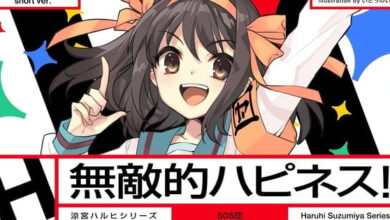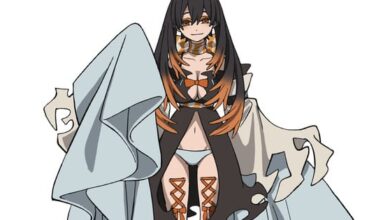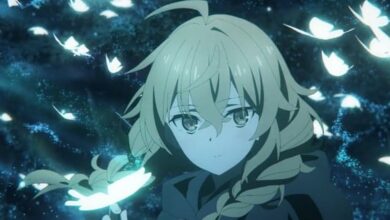Episode 16 – Sword of the Demon Hunter

©Nakanishi Motoo/Futabasha, “Onijin Gentosho” Production Committee
Yes…a iyashikei story? This seems far from obvious – I expect an episode to be based on all the plots last week, about the political turmoil in Edo in the 1860s. Instead, the episode feels like a mere episode as Jinta ends up trapped in a “alternative” marriage life created by the monsters of the week. But the show doesn’t lose the trick of twists and turns. The ending shows that this experience will permanently change Jinta, and the “monster” turns out to be the guardian angel.
This is a benign surprise, recalling the first twist of the show COUR It involves the owner of the ramen restaurant and his daughter Ofu. Although their story echoes the space-time “Urashima Taro”, this new episode explicitly evokes a different story, namely “Urikohime,” where a demon kills a human girl and wears her skin. But Jinya’s emerging wife Yunagi pointed out that like any strong story, you can find all kinds of meanings. (If you want, raise it hikaru died in summer)
By the end of the episode, Jinya sees the story as a metaphor for his situation and how he works to bury his true self. It is often driven when fairy tale characters are called by their true hidden names. How sweet Jinya ends up ask Yunagi called him with his real name, “Jinta”, and he lost it in the first episode.
Of course, most non-day viewers don’t know the story of “Urikohime”. However, the story of Jinta (Jinta/Yunagi) belongs to a newest story tradition, and characters glimpse into their paradise (think some kind of mountain cabin). Attack Titan). If the episode was indeed formulaic, it would have made Jinya marry a resurrected Shirayuki, and it would have fallen into the mediocrity of desire to provide bad service to both characters.
Yunagi is a more interesting character, especially when we joke that we “know” that she is a villain who repeatedly claims that she hates baby daughters. This ominous theme turned out to be a game of handstand psychology with Jinya and ours. The image I chose was from the closest to the end of the episode, conveying Yunagi’s non-human nature with light grace. (The scary fox at the beginning of the episode is enough, even though it is raised by a fireball.)
like Makoto Shinkai‘ Your name.this episode evokes the magic of Twilight. The most beautiful moments fill the river bank, while Jinya says “thank you” and remembers the people he cares about die or lost. At this point, the music is great. It may be isolated “no” track, but fills the exact position of the heart.
It makes sense that books about ghosts and goblins were all the rage in Japan in the 1860s, and as early as the Western writer Lafcadio Hearn collected these stories into his 1904 book basket and send them into a wider world.
grade:
Demon Hunter’s Sword Currently flowing
Hidive.




